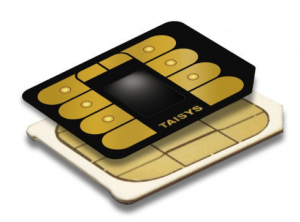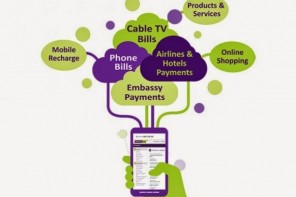Ever since the launch of mobile money in 2007, the lives of Kenyans were forever changed. 2014 might be another pivotal milestone for Kenya’s ongoing digital revolution. Equity Bank, the largest customer based bank in the country has introduced paper-thin SIM cards combining both telecommunications and banking services. The rise in competition in the telecommunications industry saw an increase in sales for dual phones as users attempted to reap the benefits of different networks through one medium. Additionally the entry of Equity’s Equitel into the market could make dual phones obsolete and change the face of mobile money.
The bank has been licensed as a Mobile Virtual Network Operator (MVNO) by the telecoms regulator earlier this year. An MVNO is facilitated by another mobile network operator by permitting bulk access to network services at wholesale rates which the MVNO then sets retail prices independently. This has for all intents and purposes married it to the number two telecoms network in the country, Airtel. According to Equity Bank’s chief executive James Mwangi this is a big win for the company as “there is no capital expenditure because we are being hosted, it’s plug and play.” Additionally this is not good news for the country’s leading telecommunications and money transfer operator, Safaricom.
 Equity will provide its customers with the 0.1 millimetre thick film to be layers on an active side of the customers’ original SIM cards without having an effect on the customers original services providers’ network reception. Above and beyond that these SIM cards will be directly linked to their bank accounts enabling the users to access their accounts and apply for loans via their mobile phones. Coming into an already well established market is a daunting task for anyone, but Equity will be offering this revolutionary technology free of charge for all its customers. They are currently using the ordinary SIM cards and have already registered 200,000 customers with daily registration reaching 6,700 as of 28th October 2014.
Equity will provide its customers with the 0.1 millimetre thick film to be layers on an active side of the customers’ original SIM cards without having an effect on the customers original services providers’ network reception. Above and beyond that these SIM cards will be directly linked to their bank accounts enabling the users to access their accounts and apply for loans via their mobile phones. Coming into an already well established market is a daunting task for anyone, but Equity will be offering this revolutionary technology free of charge for all its customers. They are currently using the ordinary SIM cards and have already registered 200,000 customers with daily registration reaching 6,700 as of 28th October 2014.
Moreover, one other way to ensure that subscribers flock to your service is to make sure that your prices are lower than all your competitors’. It is public knowledge that the bank charges a 1% transmittal fee at an upper cap of 25ksh; practically this means that if you want to transfer an amount greater than 2500ksh one will only be charged 25ksh. This compared to M-PESA that charges 40ksh to send the same amount as they apply a principle of the more you send the more you spend. Furthermore, because this cutting edge service is linked to the user’s bank account one can easily transfer their money into their accounts and vice-versa without the use of an intermediary. It seems that Equitel is not focusing on becoming a leading telecommunications provider but a mobile money leader. This is evident from their call rate which paints a picture at par with competitors’ and even higher rates for data services; prepaid telephone rates to all networks will cost 4ksh per minute; text messages at 1ksh and data services at 4ksh per MB.
There has been concern from competitors and private individuals about the security risks the thin SIM technology may pose. The main threat being that the thin SIM may intercept the primary SIM’s data and relay this data to third parties, virtually exposing private information to unscrupulous individuals. However the Communications Authority has ruled in Equitel’s favour and the pilot program is currently underway.
The question is will Equitel with its thin SIM technology threaten Safaricom’s large share of the mobile money transfer market? The reason that dual SIM cards are so popular is that you can use both numbers simultaneously; this is not possible with Equitel. One will be forced to go ‘offline’ on their primary number to access Equitel services and vice-versa. This worked in their favour with the Communications Authority ruling but this may not be the case with subscribers who may be reluctant for fear of missing an important call on their primary line.
Equity has made it no secret that they are challenging Safaricom’s chokehold on the market but can they? Safaricom is East and Central Africa’s most profitable company. Put side by side in terms of pre-tax profit for the year ended 2014 Safaricom emerges with 23sh billion where Equity only manages a 5.4sh billion. When it comes to breaking the bank to keep customers or in Equity’s case to attract customers Safaricom simply has more money to spend. Equally important is the agents that facilitate deposits and withdrawals. The lack of agents has been the deal breaker for many Kenyans when it comes to Airtel Money and Orange Money whose agents are usually few and far between. This is not the case for Equity who already has agents all over the country as well as a bank in all rural towns; it will undoubtedly help them threaten the current leaders of the market. For those who are not Equity bank holders they will also be attracted to the service according to Head of Research at Genghis Capital Silha Rasugu, he goes on to say that “in the long run price sensitive individuals who use M-PESA to pay utility bills and salaries will open equity bank accounts because of the cost implications.”
One thing is for certain, Kenyan’s are tired. They are tired of the monopoly that Safaricom has created and they are tired of being exploited by that monopoly. Speaking to a customer of M-PESA who regularly sends roughly 100,000 per month from Nairobi to Naivasha said “after using M-PESA for so long I now prefer to transport the money via road because it is cheaper.” It is my sincere hope that Equitel takes that into consideration as they continue to put their foot in the door in the mobile money industry. Moving forward they should not try and compete on the telecommunications platform but focus solely on mobile money that way optimizing their services for consumers countrywide.





